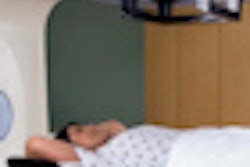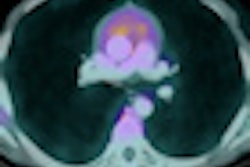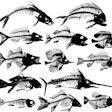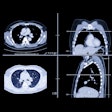
STOCKHOLM (Reuters) - Giving breast cancer patients radiotherapy and chemotherapy at the same time significantly cuts the risk of recurrence and should be considered as a new treatment approach across the world, cancer experts said on Sunday.
The double treatment, known as synchronous chemoradiation, could also save lives among people with breast cancer, according to the British experts who conducted a major scientific study.
They said the synchronous treatment, which the study showed has limited side effects and does not harm patients' quality of life, should be considered for use by all breast cancer doctors.
"The results have implications worldwide," Indrajit Fernando, a consultant clinical oncologist at the University Hospitals Birmingham Trust, told reporters at the European Multidisciplinary Cancer Congress (EMCC) in Stockholm.
"Clinical practice needs to be reviewed."
The standard approach is to give chemotherapy first, followed by radiotherapy.
But the best timings for radiotherapy and chemotherapy have long been debated among cancer experts, so Fernando's team decided to study various schedules of radiotherapy and anthracycline-CMF chemotherapy in patients with early-stage breast cancer.
The study involved almost 2,300 women in Britain who had already undergone surgery.
The results showed that compared with the standard approach, giving both treatments at the same time "reduces the risk of local cancer recurrence by 35% in women with early breast cancer," Fernando said.
At five years, tumors had recurred in only 2.8% of those who got radiotherapy and chemotherapy treatments at the same time, compared with 5.1% among those who received the therapies separately.
Although there were no differences in overall survival rates between the two groups after five years, Fernando said he would expect to see survival rates rise in larger groups of patients over a longer time period.
"Even a 2.3% reduction in local recurrence rates will have an impact worldwide when we consider that this is a very common cancer," he said, citing data showing that for every four local recurrences of the disease prevented, one death from breast cancer death can be avoided.
Fernando said he has already changed practice in his own clinic and will send his data to Britain's National Institute of Clinical Excellence, which advises on treatment guidelines.
Michael Baumann, president of the European Cancer Organization, said more follow-up would be needed to assess potential longer-term side effects. "I am convinced this trial will spur a lot of discussion," he said.
By Kate Kelland
Last Updated: 2011-09-26 9:00:39 -0400 (Reuters Health)
Copyright © 2011 Reuters Limited. All rights reserved. Republication or redistribution of Reuters content, including by framing or similar means, is expressly prohibited without the prior written consent of Reuters. Reuters shall not be liable for any errors or delays in the content, or for any actions taken in reliance thereon. Reuters and the Reuters sphere logo are registered trademarks and trademarks of the Reuters group of companies around the world.



















